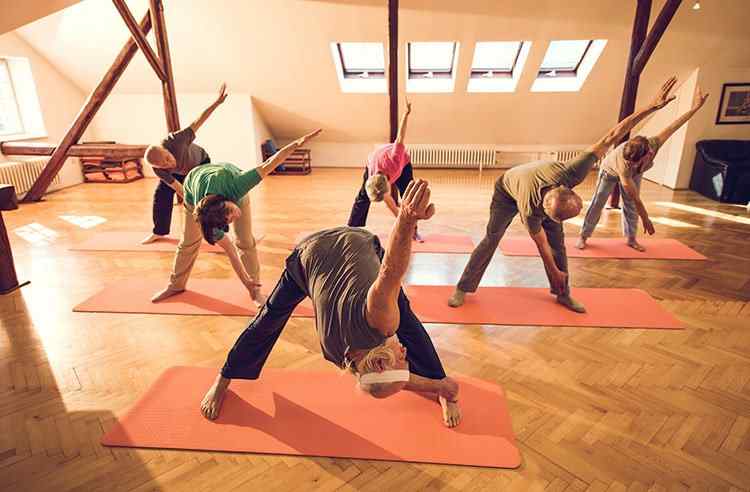Most people maintain a fit appearance due to their busy lifestyle at work in their younger years. But what happens after retirement and when you’re stuck at home and with fewer activities to keep your body and mind engaged? You may find yourself quickly gaining weight due to a lack of physical activity. If exercise has never been a significant part of your life, you might be confused about where and how to start.
At least, for seniors living in continuous care retirement communities, there are planned out activities that help keep them in healthy physical shape. It gets more exciting since they can do them in groups amongst the seniors living in the retirement community. However, if you’ve been physically inactive for the better part of your life, worry not! In this article, we’ll guide you on how to start your exercise routine:

1. Get Medical Clearance
As you get older, your body loses the strength and vitality you had in your younger years. Therefore, you should not dive into any exercise routine without getting a go-ahead from your doctor, especially if you have any preexisting medical conditions.
First, go for a medical and fitness level assessment. The medical examination enables your doctor to advise you accordingly on coping under the current health conditions. The fitness assessment allows them to advise you on what exercise routine you can start with and long to do it. Above all, your doctor is there to ensure that you exercise safely.
2. Choose and Commit To an Exercise Routine
Now that you have the doctor’s go-ahead to start exercising, choose a routine that feels comfortable for you. Find a workout that you enjoy doing and one that’s all-around in terms of strength, balance, and aerobics. Join a support group or encourage your friends to join you to make it more fun and motivate each other.
There are times which you will not feel like waking up to exercise, but with an accountability group around you, it won’t be too hard to keep up. Also, ensure that you commit to a five-day weekly routine and leave the two days for rest. Rest is essential while exercising and should never be taken for granted. Also, remember to build up your workout of choice slowly but in progression. Try to stick to this routine for a minimum of one month.
3. Buy The Right Exercise Gear
Every exercise routine has a specific gear to ensure that you exercise safely and avoid unnecessary injuries. They will also ensure that you’re comfortable, have better grip, mobility and momentum to keep working out. Also, the appropriate clothing fabric is necessary to take in the sweat and ensure that you obtain maximum benefits from your exercise.
4. Do A Self-Assessment
Self-evaluation is critical when doing anything serious in life. It not only shows you the progress you’ve made but also helps you make the necessary adjustments to your exercise routine. If you’ve not experienced any fatigue or sore muscles in the first weeks of your training, then you’ll be sure that you’re not doing enough. Besides good exercise gear, treat yourself to good exercise equipment like a smartwatch with an app on your phone that monitors your progress.
5. Always Listen to Your Body
You should always be conscious whenever you’re exercising and never ignore any stubborn regular discomforts. For example, if you’re constantly feeling a sharp pain in your leg or feel dizzy while taking your daily walks, then don’t push it. Ignoring frequent discomforts could lead to a disaster in the end, and you may get banned entirely from exercising. However, if you can manage the pain, try and lessen the days or times you exercise, and if this doesn’t change, talk to the doctor for further advice.
6. Take Balanced Meals
Don’t underestimate the kind of exercise you do, no matter how long it takes or the energy used. Your body will need constant nourishment and renewal of worn-out muscles, especially after an injury. Your doctor or dietician will help you figure out the best diet to keep your body well-nourished. Also, add more water to your daily diet.
If you’re not able to take water, consider taking watery fruits. They are equally nutritious, and in combination with the few glasses of water, you will get the water content your body needs. However, when you gradually reach the over 60minute exercise mark, consider taking sports drinks to ensure electrolyte balance and give you more energy.
7. Set Goals and Reward Yourself
Staying disciplined through an exercise routine is not easy. The whole process is easier said than done. Besides accountability with your friends or support group, setting goals for yourself will help you stay focused. Once you achieve your goals, make sure that you reward yourself after the exercise the healthy way. You can treat yourself to a spa or go to your favorite restaurant for a cocktail.
The workout journey is not always easy; that’s why we should appreciate anyone who has done it for many years without getting weary. However, everyone gets overwhelmed at times, and it’s normal, so don’t beat yourself about it. Also, remember everyone is unique, so don’t get discouraged and be patient with yourself.
About the Author
Jenn Walker is a freelance writer, blogger, dog-enthusiast, and avid beachgoer operating out of Southern New Jersey.





